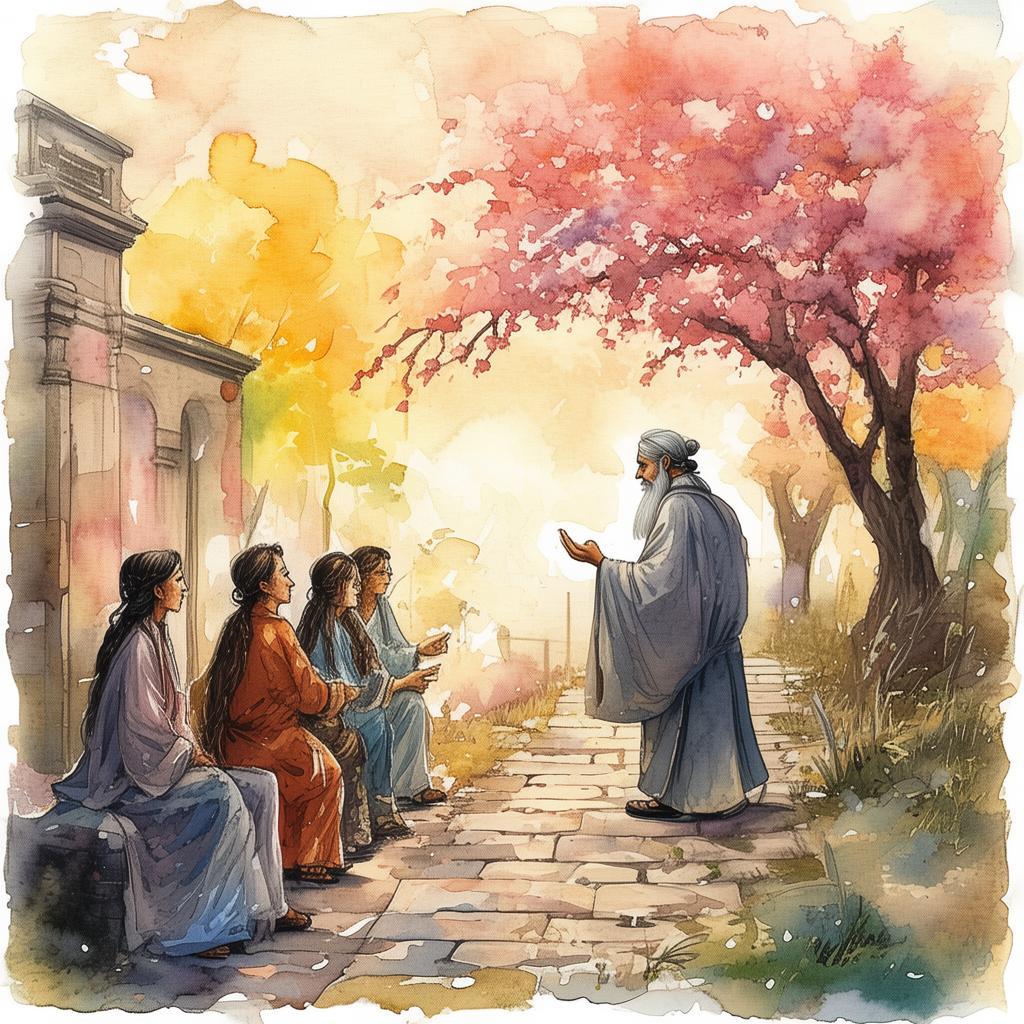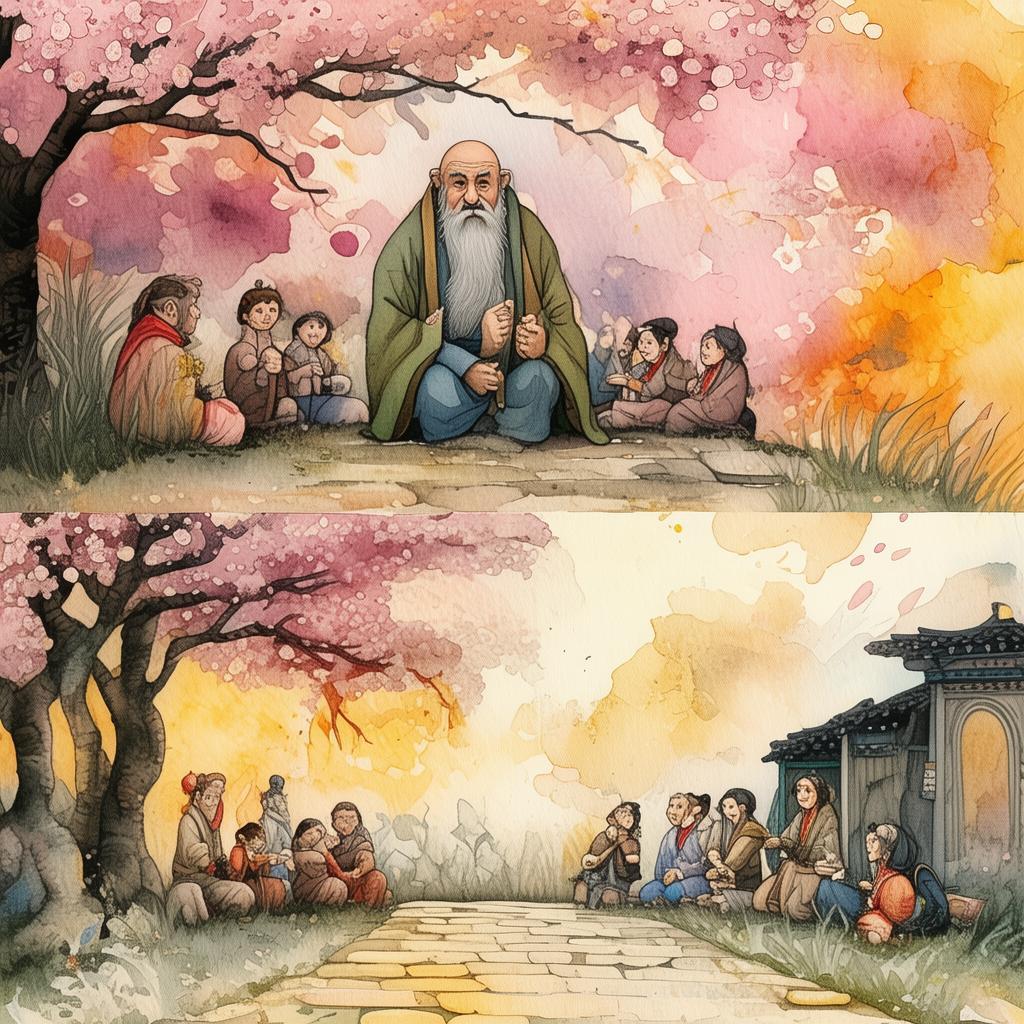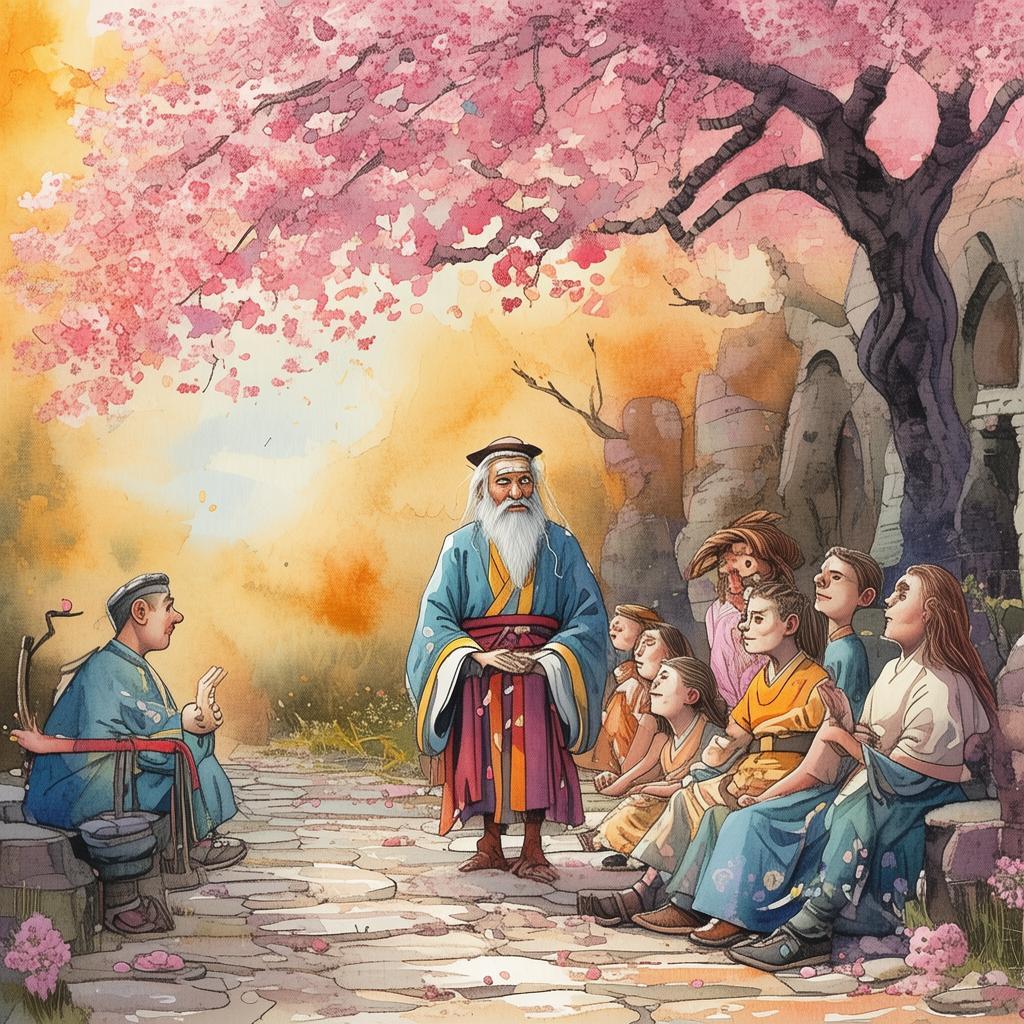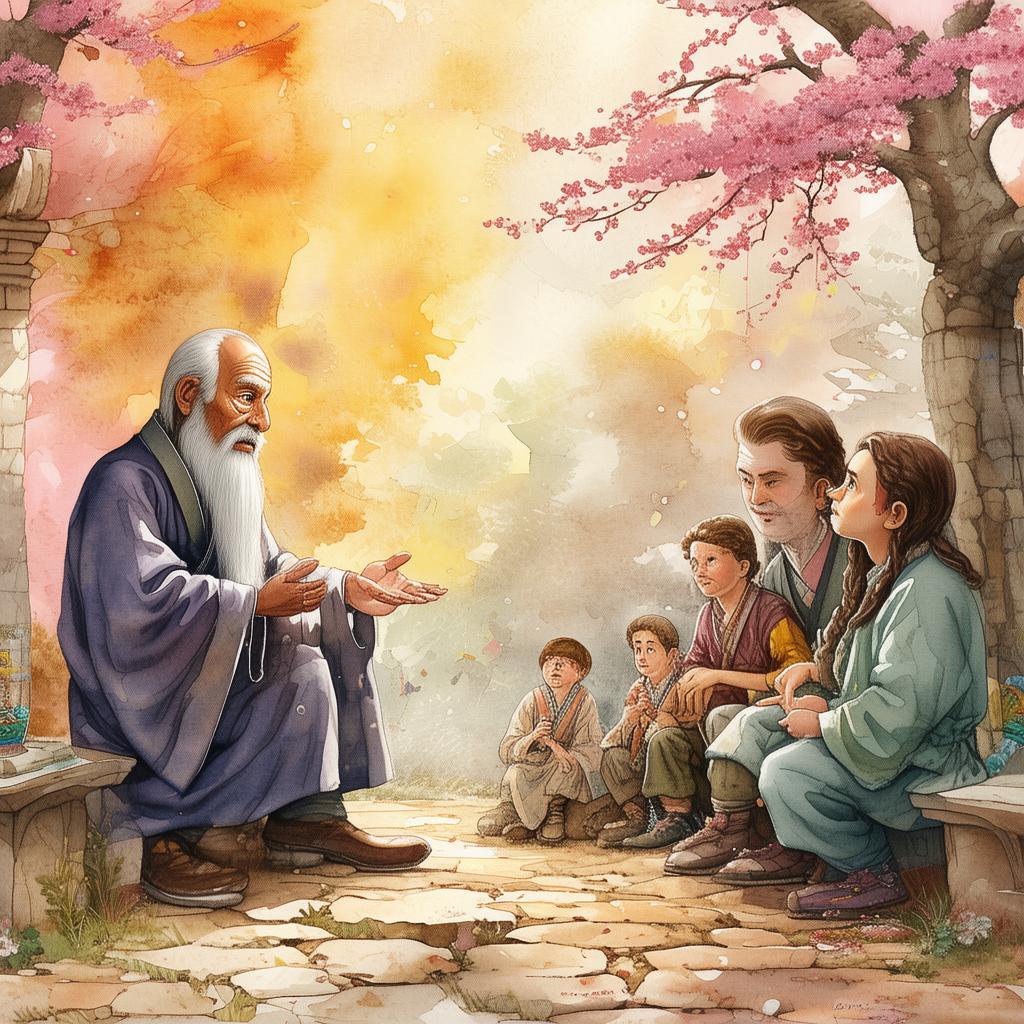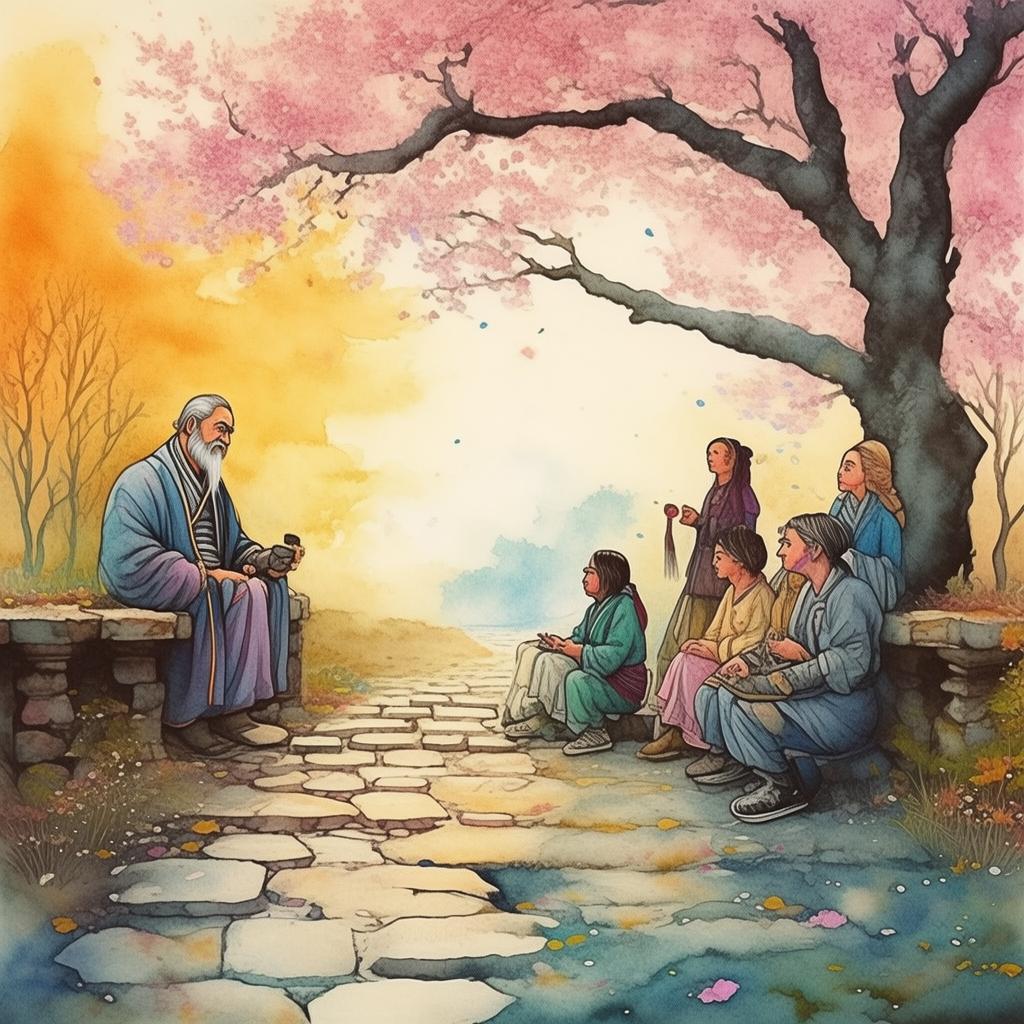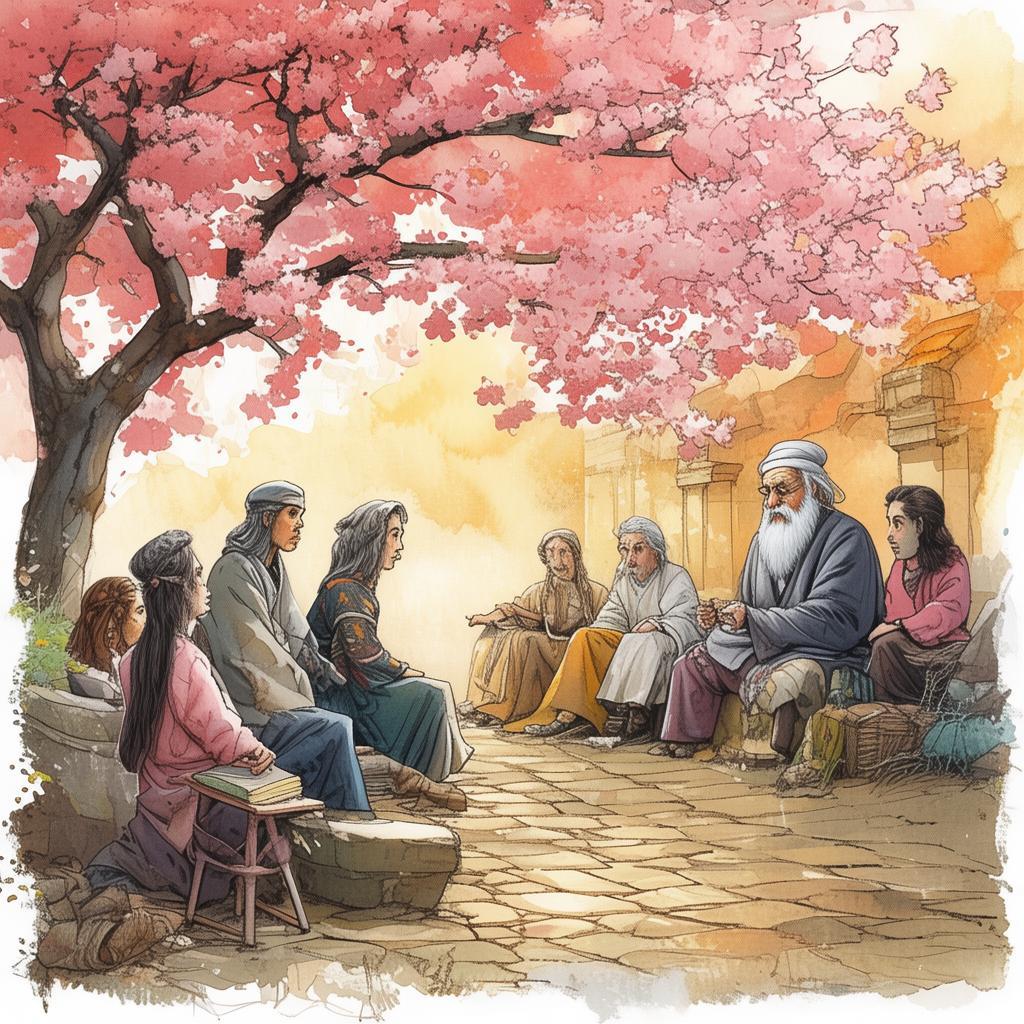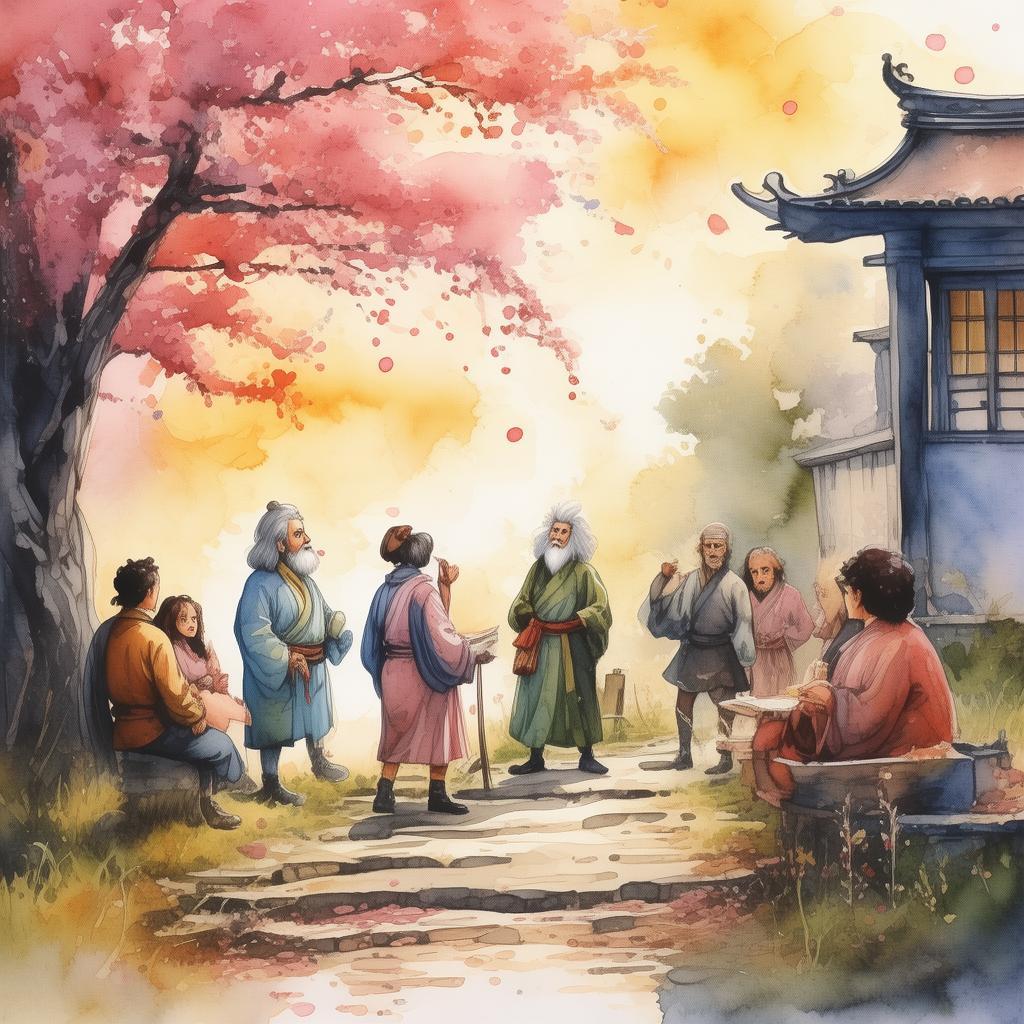The Illusion of Perfection: A Tale of 'Shi Jue Zhi Bing'
In the bustling city of Shanghai, young and ambitious artist Xiao Mei was on the cusp of fame. Her latest work, a series of intricate paintings depicting the idyllic life she aspired to lead, was about to be unveiled at a prestigious gallery. The centerpiece of the exhibit was a painting she had titled "Shi Jue Zhi Bing" (The Illusion of Perfection), which was said to embody the essence of her dream life.
Xiao Mei's friends and colleagues were envious of her success, and her critics hailed her as a prodigy. However, behind her serene smile and polished public persona, Xiao Mei harbored a deep-seated fear of imperfection. She worked tirelessly, sacrificing sleep and personal relationships, driven by the relentless pursuit of perfection.
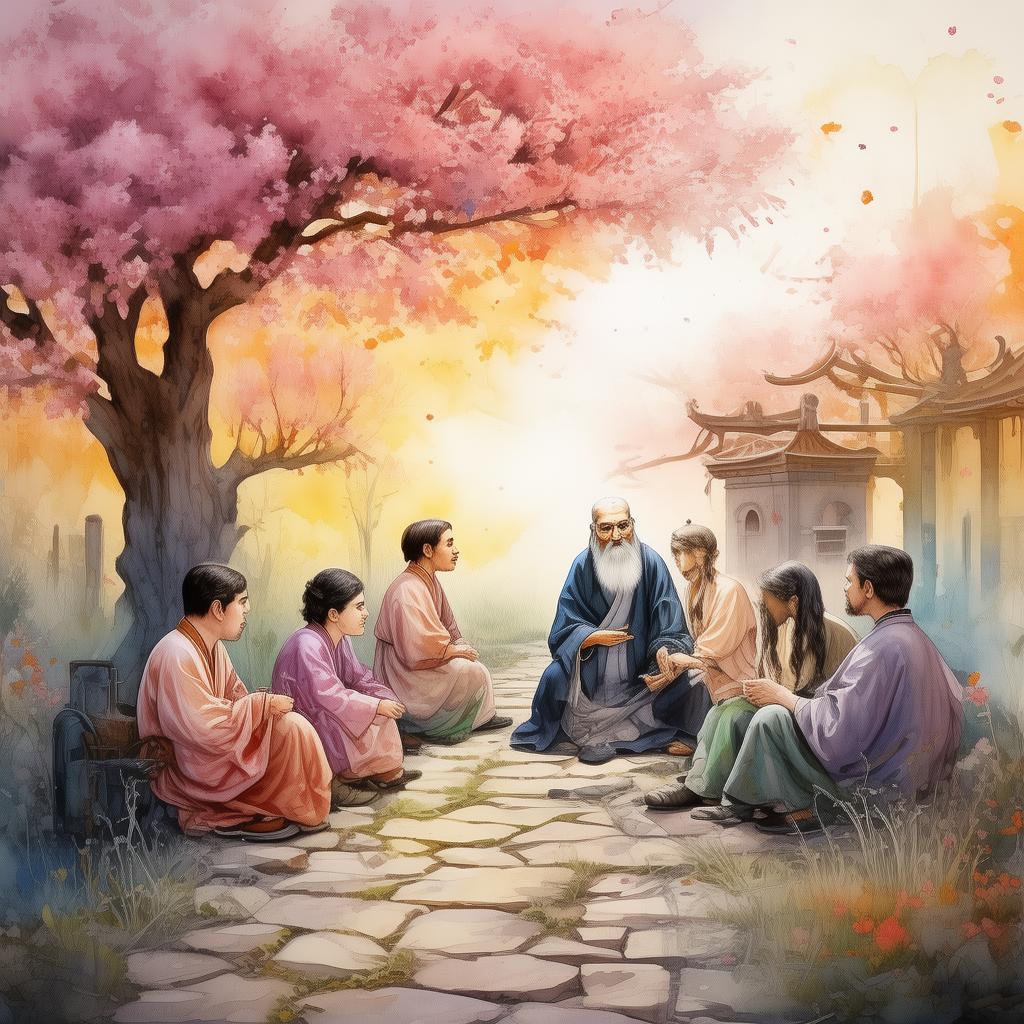
As the day of the gallery opening approached, Xiao Mei's closest friend, Li Wei, noticed a shift in her behavior. Li Wei, a keen observer and confidant, became increasingly concerned about Xiao Mei's single-mindedness and the toll it was taking on her mental health. Despite her attempts to reach out, Xiao Mei was unyielding, consumed by her quest to showcase the perfect life.
The gallery opening was a resounding success. Visitors were captivated by the paintings, particularly "Shi Jue Zhi Bing," which was met with rapturous applause and comparisons to the works of a legendary artist. However, Xiao Mei couldn't shake the feeling that something was missing. She longed for genuine connections and the warmth of friendship that seemed to elude her.
Li Wei's concerns grew when Xiao Mei began to exhibit increasingly erratic behavior. One night, in a fit of desperation, she confessed her fears to Li Wei, revealing her insecurities and the heavy weight of her ambition. Li Wei, with a heavy heart, advised Xiao Mei to step back and appreciate the life she had built, rather than the one she imagined.
The next morning, Xiao Mei found her gallery ransacked. The painting "Shi Jue Zhi Bing" was missing, along with several other pieces. The news spread like wildfire, and Xiao Mei was besieged by the media and public opinion. Amidst the chaos, Li Wei discovered that the thief was a former mentor of Xiao Mei's who had been disillusioned with her relentless pursuit of perfection.
The mentor had seen through Xiao Mei's facade, recognizing the emptiness and pain beneath her perfect image. In a final act of rebellion, the mentor had stolen the painting and left a note that read: "Perfection is an illusion. True beauty lies in acceptance and vulnerability."
Devastated by the loss of her masterpiece, Xiao Mei sought refuge in Li Wei's apartment. It was there that she finally understood the mentor's message. She realized that the perfection she had been striving for was an illusion, a false ideal that had trapped her in a cage of her own making.
With Li Wei's support, Xiao Mei began to dismantle the walls she had built around herself. She started to engage in social activities, rebuild her friendships, and embrace the imperfections that made her human. Her art transformed as well, becoming more authentic and expressive, reflecting the raw emotions and real experiences that had once been shunned.
The story of Xiao Mei and "Shi Jue Zhi Bing" became legendary among artists and onlookers alike. It served as a stark reminder that the pursuit of perfection can be a destructive force, and that the true beauty of life lies in embracing its imperfections.
In the end, Xiao Mei's art gained new meaning and a profound connection with her audience. Her paintings were no longer just images of the perfect life but a testament to the human experience, celebrating both the triumphs and the struggles that make us who we are.
The tale of Xiao Mei and "Shi Jue Zhi Bing" resonated with many, sparking discussions about the nature of ambition, the dangers of perfectionism, and the importance of self-acceptance. It became a viral story, not just for its emotional impact, but for the powerful message it conveyed—a message that would continue to resonate for years to come.
✨ Original Statement ✨
All articles published on this website (including but not limited to text, images, videos, and other content) are original or authorized for reposting and are protected by relevant laws. Without the explicit written permission of this website, no individual or organization may copy, modify, repost, or use the content for commercial purposes.
If you need to quote or cooperate, please contact this site for authorization. We reserve the right to pursue legal responsibility for any unauthorized use.
Hereby declared.
